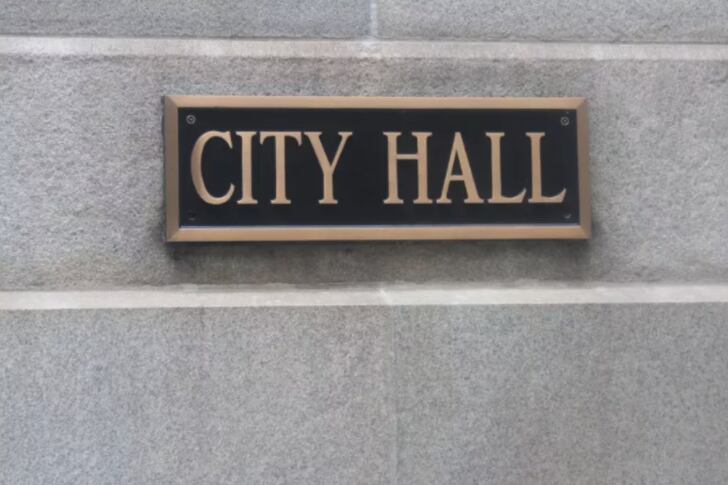Two years ago, Chicago aldermen called for hearings about Chicago’s school police program following an inspector general report that showed a litany of failures to screen and train Chicago police officers assigned to schools.
But no hearing took place — until now.
Amid nationwide protests against police violence, and a vocal youth-led movement calling for an end to school police at home, Chicago’s City Council held a virtual hearing Thursday on the school police report from two years ago.
The five-hour meeting gave Chicago Inspector General Joseph Ferguson a platform to review the police department’s efforts to reform the school police program, which Ferguson graded a B for effort but said was still too slow in implementing reforms, even with pressure from the federal consent decree on Chicago police. He also said it didn’t include enough community or school input in regard to the sweeping changes brought in this year. Chicago has 144 resource officers at schools, 48 mobile school officers, and 22 staff sergeants.
The hearing also gave aldermen a chance to pepper school and police officials with questions on the controversial program, making one thing clear: There are still many unanswered questions about school policing, including how many student arrests took place inside schools and the cost breakdown of the $33 million contract from this past school year.
“I’m a little dismayed that there’s such a lack of answers,” said Alderman Andre Vasquez, who asked speakers to give the district and police department a letter grade on their reform efforts. “When there’s a hearing, you would imagine something as basic as … what the cost looked like, there would be more preparation.”
The vote took place one week after Chicago’s school board narrowly voted down an effort to terminate its school police contract, and a month after Minneapolis’ school board decided to cut ties with the police department. It was a sign of some success of Chicago youth organizers’ multi-pronged effort to push police out of schools. The organizers have said they want to pressure the board and City Council members to terminate the police contract.
Even as the mayor and schools chief have vocally opposed demands from activists to remove school police, and City Council legislation to terminate the school police contract pushed by some progressive aldermen was blocked earlier this month, the public Safety Committee heads decided to move forward with the hearing.
Chief of Safety and Security Jadine Chou represented Chicago Public Schools, and Barbara West, deputy superintendent, represented the Chicago Police Department.
Ald. Jeanette Taylor, a longtime education activist and Chicago Public Schools parent, grilled the district on how many officers were removed from schools because of misconduct complaints. Representatives weren’t able to answer, but a Chalkbeat review of current school-based officers, obtained in the fall, shows that 96% have faced allegations of misconduct, according to the Citizens Police Data Project, a database of police disciplinary records obtained by the Chicago-based non-profit journalism project Invisible Institute.
Ald. Rossana Rodriguez-Sanchez asked if the district could say how many arrests happened in schools, and Chou said she didn’t have that figure.
Ald. Pat Dowell, who last week urged school officials not to make a “rash” decision and remove officers from schools, asked where the $33 million breakdown came from and how it was divided by school. Chou and West said the funding comes from the Chicago Public Schools general fund, and goes towards salaries and equipment, but weren’t able to offer further details.
Chou said that while efforts to engage community members in school police reforms and continuing to collect and analyze data was a work in progress, the program had undergone a significant series of positive changes this school year, including clearer job descriptions and a written agreement between police and school officials.
September 2019 was the deadline for program changes, such as job descriptions and school-specific training, mandated by a federal consent decree overseeing school police. A Chalkbeat review of those changes in February found some students and teachers didn’t see much difference.
“We are still working through ongoing reports, and it is everyone’s intention to make sure that this information is transparent and available to the public so that everyone understands how well the program is going,” Chou said.
While most aldermen were critical of the contract and asked pointed questions about its impact on Black and brown students, others said the recent improvements gave them confidence. Ald. Anthony Napolitano, a parent, said students “don’t always know what’s best for them.”
Looking ahead, Chou said Local School Councils, representative bodies that currently have the authority to remove a police officer from a school (though if they vote against keeping officers they can’t still use the funds), will receive toolkits this summer to help inform their decision the next time they vote on keeping an officer in their school.
Chou and West promised alderman at the hearing that they would share data including a breakdown of spending in the $33 million police contract, how many schools with officers have active school councils to vote on police, and how many officers were removed from schools because of misconduct complaints.
Even with a series of setbacks, including the board vote and the stalled city council legislation Chicago activists said they will continue pushing for an end to school police. On Thursday, one coalition of youth and community groups held an afternoon hearing giving their testimony in favor of removing school police.
The school board is expected to take up the school police issue again this summer, when it has to vote on whether to renew the current $33 million contract.







